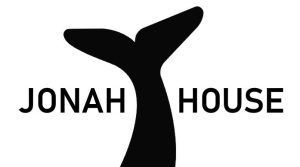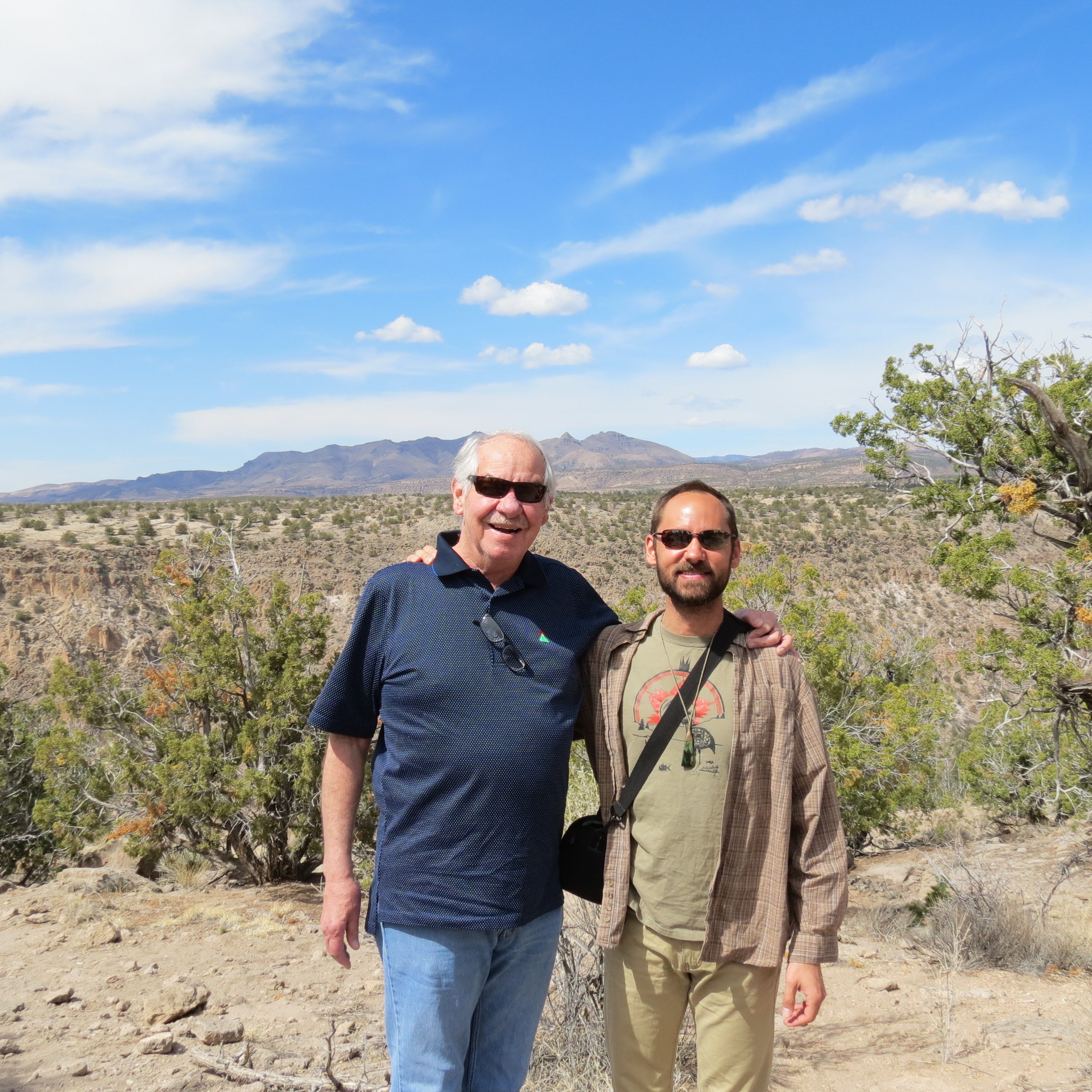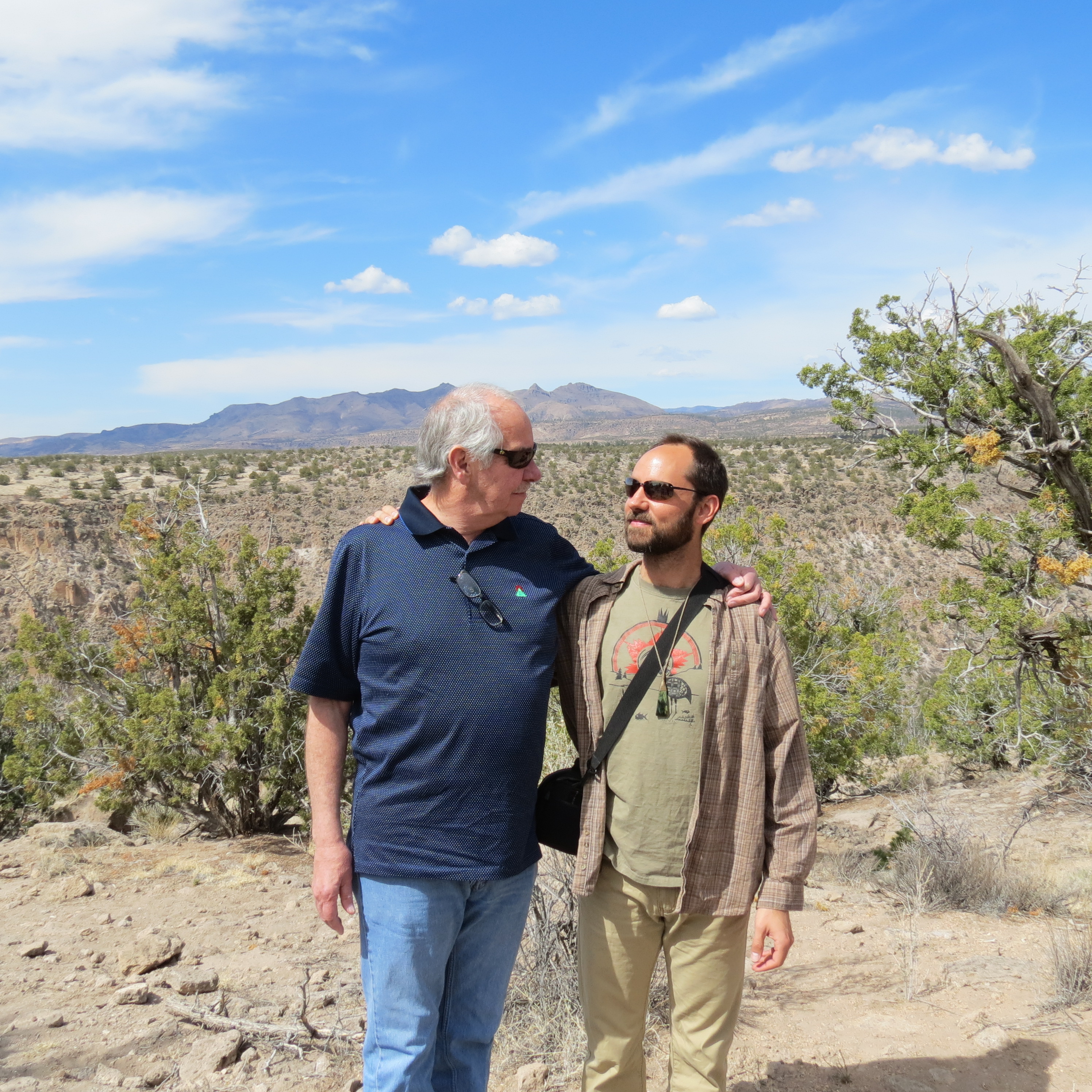My dad once told me that being a father is like no longer having your own heartbeat. You share a pulse with your children.
This made little sense to me until I held Auggie for the first time. And of course my dad’s wisdom has been reaffirmed with Evie. I know of no greater pain than seeing my children suffer. I know of no greater fear than when I consider the infinite ways they might be broken by the world’s violence. But I also experience boundless joy when they smile and laugh, when they look at me and the world around them with wonder: Evie’s expression when our eyes meet, the way her whole face turns into a grin; and with Auggie, it’s all about mow tractor, noodles, and “Up with Daddy” — or Up with Mommy, Joe and anyone willing to take him for a ride on the Scag.
The Buddha likened the practice of awakening to the love a parent has for their child — manifested outward to inlcude all beings. If only my actions in body, speech and mind were half as generous and spacious as the love Auggie and Evie have initiated me into!
Being a parent has a way of transforming any moment, disrupting my grasp on the way things “should” be, how I’d like life to go. A somber example.
The other day while driving to visit my sister I was listening to the radio. The host of the news program was reporting about the assault on an off-duty Parisian police officer and his family. The only survivor of the attack was a 3 year old child. When I heard this, my entire body stiffened. I pulled over, too overwhelmed by fear and sadness to drive. Parked on the side of the road, it struck me that somehow I’d be deceiving myself not to imagine the incomprhensible grief of that child and wonder what the day after losing both his mother and father must have been like. And how would Auggie and Evie cope if Emily and me were gruesomely murdered?
I have learned that being a father, along with the bliss, also means accepting that — as the depth psychologist James Hillman once put it — as soon as you’re born you’re ready to die.
Though they’re young now, I wonder all the time: How do I help my children prepare to face suffering and death, protecting them from experiences that might cause horrific injury, while also teaching them resilience and the skills needed to embrace and heal a world increasingly replete with violence and injustice? How do I also teach my children to receive joy, in the very midst of hardship, and live wholeheartedly, expressing their gifts in abundance and for the sake of others?
As these questions come to me I consider some wisdom shared by men I interviewed for my dissertation. Fatherhood was a core theme in their lives, and their struggles to make sense of it centered around these three questions: (1) How do I face, and can I accept, my father’s failings and vulnerabilities; (2) Does my father affirm me as I am; and (3) Do I feel capable of being a father myself? Not necessarily by having a child, but rather by awakening a sense of inseparable connectedness to an other, whether person, community, project, or cause, and sustaining that relationship for the course of its life.
Reflecting on this day and calling to heart and mind my father ancestors, living and dead, I was struck most by the first question. I’ve been considering how a father’s open, honest and loving relationship with his vulnerabilities can prepare a child to be in right relationship to his own fragility and brokenness. This has been one of my dad’s greatest gifts to me. He’s taught me, as he once put it, how to lie belly up — courageously naked and vulnerable. Not to get rid or cure myself of my injuries, but to hold a space for the suffering, to let it be a branch into someone else’s life and recovery.
While my meditations have taken me to my father and his father and some inheritance of suffering between the three of us and beyond, there’s something I carry with me into my own fathering of Auggie and Evie, something from the soul of my dad, which I like to think is his genius, Buddha Nature, spark.
I felt it as a child on our trips to the same beach in North Carolina he used to visit as a kid, not far from the tobacco farm where he grew up. At the beach we’d wade in the ocean in the late afternoon and my dad would sing rugby songs — changing all the words inappropriate for us to hear (essentially re-writing the songs entirely) — singing loudly and with a silly British accent — because he’d learned how to play rugby in England where he was stationed during the Vietnam War; because he’d learned how to replace his Carolina drawl with just a touch of a Londoner’s lilt. My sisters and I would splash him with water, he’d help us launch off his shoulders and dive into waves. He’d act goofy. He’d play like a kid, just like us.
This poem reminds me of him in those moments and embodies the love I try to realize with Auggie and Evie.
First we braid grasses and play tug of war,
then we take turns singing and keeping a kick-ball in the air.
I kick the ball and they sing, they kick and I sing.
Time is forgotten, the hours fly.
People passing by point at me and laugh:
“Why are you acting like a such a fool?”
I nod my head and don’t answer.
I could say something, but why?
Do you want to know what’s in my heart?
From the beginning of time: just this! just this!
— Ryokan






